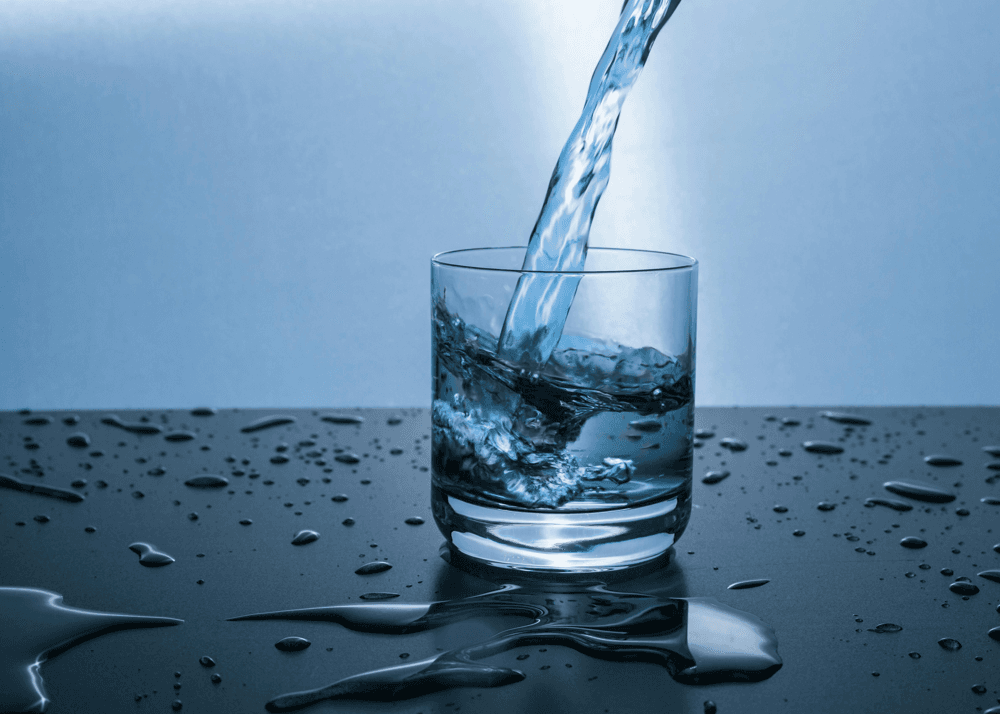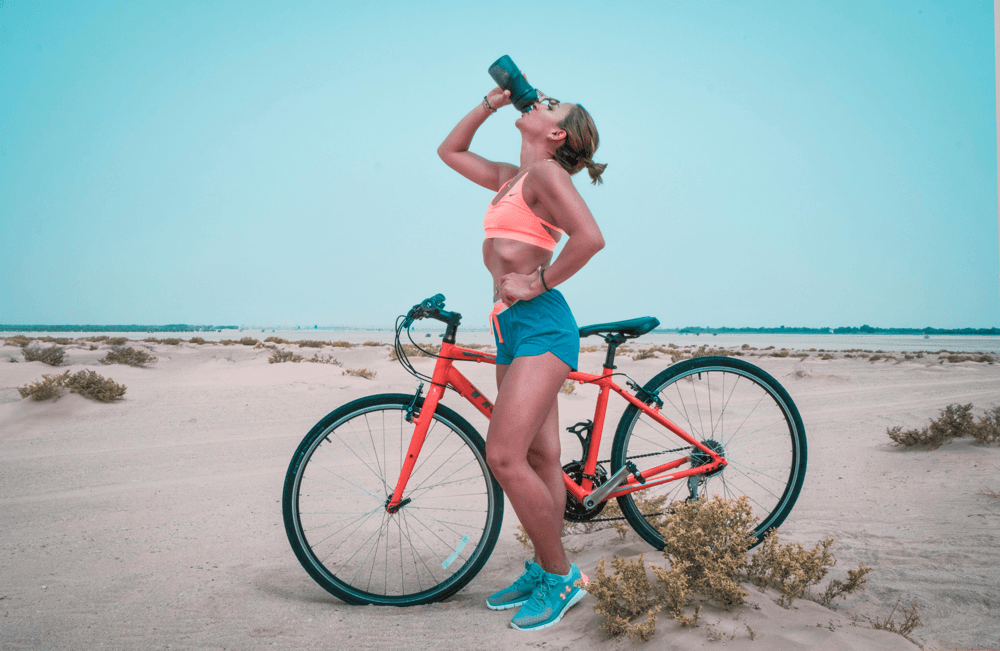Best Time to Drink Water for Maximum Hydration
Water is the foundation of life, making up about 50–70% of your body weight, and every cell and organ needs it to function properly. Even mild dehydration can sap your energy and impair mood or concentration. While drinking enough water each day is vital, when you drink can be just as important. By timing your water intake strategically – aligning with your circadian rhythm, daily activities, and energy needs – you can optimize hydration for better digestion, higher energy, and overall well-being.

Morning Hydration: After Waking Up
Starting your day with water can give your body a much-needed metabolic and hydration boost. After 7–8 hours of sleep, you naturally wake up a bit low on fluids. Many people find that drinking water first thing in the morning helps them rehydrate and feel alert, setting a healthy tone for the day. In fact, studies show that drinking about 17 oz (500 mL) of water can temporarily increase your metabolic rate by 24–30% for the next hour or so. This water-induced thermogenesis (especially if the water is cool) essentially "kickstarts" your metabolism and may contribute to burning a few extra calories.
Morning hydration is also linked to better brain function. Even mild dehydration (1–2% of body weight) can negatively affect your mood, focus, and memory. So, a glass of water upon waking can help you feel more alert and shake off that grogginess. It's a simple habit that supports your circadian rhythm – your body's internal clock – by giving your system a signal that it's time to start the day. (During sleep, your brain releases a hormone called vasopressin to help retain water and prevent dehydration, but it's still wise to replenish fluids in the morning.)
Tip: Keep a glass or bottle of water by your bedside and drink it when you wake up. This can ensure you start the day hydrated and may make it easier to maintain healthy water intake habits throughout the day.
Before Meals: Pre-Meal Water for Digestion and Weight Control
Drinking water before meals is a smart strategy with multiple benefits. First, it can aid your digestion. Contrary to the old myth that water with meals dilutes your digestive juices, research shows that water actually helps break down food and supports smooth digestion. Fluids help soften food and are needed for digestive enzymes to work properly. So, having a glass of water before (or with) a meal can prime your stomach for digestion and may prevent overeating by starting to fill you up.
One of the most touted benefits of pre-meal hydration is appetite control and weight management. Filling up on water before eating can increase feelings of fullness, which might lead you to eat fewer calories at the meal. Scientific studies have observed this effect, especially in older adults. For example, one study found that drinking ~16 oz (500 mL) of water 30 minutes before breakfast led older adults to consume about 13% fewer calories at that meal. Another study of individuals drinking water before lunch saw reduced hunger and calorie intake in older adults, though younger adults reported feeling full without a significant drop in calories consumed. This suggests that while everyone can benefit from hydration and a bit of stomach "pre-loading," the weight-control benefits of pre-meal water are more pronounced in middle-aged and older individuals.
From a weight-loss perspective, drinking water before meals has been linked to modestly greater weight loss in diet programs for older adults, likely because it helps with portion control. Even if you're younger, having water instead of a sugary drink before meals cuts out extra calories and keeps you hydrated. Plus, sometimes our bodies confuse thirst with hunger – so sipping water when you feel hungry can help you determine if you were just thirsty.
Digestive bonus: Drinking water before or during your meal can also prevent constipation and help your body efficiently absorb nutrients. And as long as you're not guzzling excessive amounts, it won't harm your digestion – so feel free to drink water with meals to stay optimally hydrated and aid the digestive process.
During and After Exercise: Hydrate for Performance and Recovery

If you're active, timing your water intake around exercise is critical. When you work out, your body sweats to cool itself, losing water and electrolytes. Failing to hydrate can lead to dehydration, which harms physical performance and can cause dizziness, cramps, or worse. Even a 2% loss of your body weight in fluids can noticeably impair endurance and coordination, and larger losses disrupt your electrolyte balance (leading to problems like muscle cramps or heat exhaustion).
Before exercise
It's important to be well-hydrated before you start a workout. About an hour or two before exercising, consider drinking some water so you begin activity with a normal fluid balance (your urine should be light yellow or clear). This pre-hydration helps prevent an early onset of dehydration during the workout. The Mayo Clinic specifically advises drinking water before, during, and after exercise to cover your fluid losses.
During exercise
For workouts under an hour, sip water periodically (e.g. a few gulps every 15–20 minutes) especially if you're sweating a lot. In longer or high-intensity workouts, you might benefit from a sports drink that includes electrolytes to replace sodium and potassium lost in sweat. Keeping a water bottle on hand while you exercise is a great habit – it reminds you to drink. Staying hydrated during exercise keeps your heart rate and body temperature in check, so you can perform at your best.
After exercise
Rehydration is part of recovery. After finishing exercise, drink water to replace any fluids you lost (your weight before vs. after can tell you how much – for each pound (0.45 kg) lost, drink an extra 16–20 oz (475–590 mL) of water). Replenishing water (and electrolytes for heavy sweat sessions) will help your muscles recover and prevent that sluggish, fatigued feeling later. Research confirms that drinking enough after working out optimizes muscle recovery and performance in subsequent sessions. In short, don't wait until you're extremely thirsty – by that point you're already minimally dehydrated. Instead, drink consistently around your workouts to keep your body running smoothly.
Evening Hydration: Before Bed – Balance Hydration and Sleep
As night falls, you might wonder if it's good to drink water before bed. The answer is a balance: you want to go to sleep well-hydrated but not overly full of fluids. Staying hydrated in the evening is important because dehydration can actually disturb your sleep. Going to bed even a little dehydrated could lead to symptoms like dry mouth, headaches, or muscle cramps that make it harder to fall asleep or stay asleep. On the other hand, drinking a large amount of water right before bedtime can backfire by causing middle-of-the-night bathroom trips that interrupt your sleep.
Your body has a natural rhythm that reduces urine production at night (thanks to hormones) so you can typically sleep ~6–8 hours without waking. If you chug a big glass or two of water immediately before bed, you'll likely override that system and have to urinate in the night. This interrupted sleep isn't just an annoyance; chronic sleep loss from frequent wakings can have health consequences over time (like increased risk of high blood pressure or heart issues).
Experts generally recommend finishing your hefty water intake at least 1–2 hours before bedtime. That way, you can empty your bladder before sleep and be less likely to wake up. Of course, if you're thirsty near bedtime, drink a small glass to satisfy your thirst – you don't want to go to sleep parched. Just avoid guzzling large volumes. A few sips of water can also be beneficial if you wake up at night dehydrated (for instance, if you had alcohol or a very salty dinner, you might get thirstier at night).
In summary, hydrate in the evening, but do so smartly: taper off big drinks before bed, and get most of your day's water before the late evening. This ensures you stay hydrated 24/7 without sabotaging your sleep. If you find that even moderate drinking close to bedtime is causing nightly wake-ups, try drinking more during the daytime and cut off fluids a bit earlier in the evening. Healthy hydration and quality sleep can coexist – it just takes a little timing and personal adjustment.
Tips for Optimizing Your Water Intake (By Activity, Weather & Age)
- Stay Consistently Hydrated: Instead of chugging large amounts of water infrequently, sip water regularly. Your body can only absorb so much at once, and spacing your intake keeps you steadily hydrated.
- Adjust for Activity: Increase your water intake on days you exercise or are very active. Drink water before, during, and after any strenuous activity to replace what you lose in sweat.
- Adapt to Weather and Environment: Hot or humid conditions make you sweat more; drink more on schedule to avoid dehydration. High altitude and very dry climates also increase fluid loss.
- Consider Age and Individual Needs: Older adults may not feel thirst as strongly; schedule small, regular sips. Kids need reminders; pregnant/breastfeeding individuals need extra fluids.
- Include Hydrating Foods: Fruits/veggies (watermelon, berries, citrus, cucumbers, lettuce) count toward intake.
- Make It a Routine: Anchor water to habits (with meals, mid-morning, mid-afternoon).
- Use Tools: [Insert link to hydration calculator]
- Avoid Overhydration Extremes: Balance fluids with electrolytes during long or hot workouts.
The Bottom Line
Staying well-hydrated is essential for your health, and timing your water intake can help you get the most out of every drop. Drink water after waking, before meals, during workouts, and taper in the evening. Listen to your body and you’ll support metabolism, digestion, and energy through smart hydration habits.
Find Your Local Hydration Needs
Get personalized hydration recommendations based on your local climate and weather conditions: